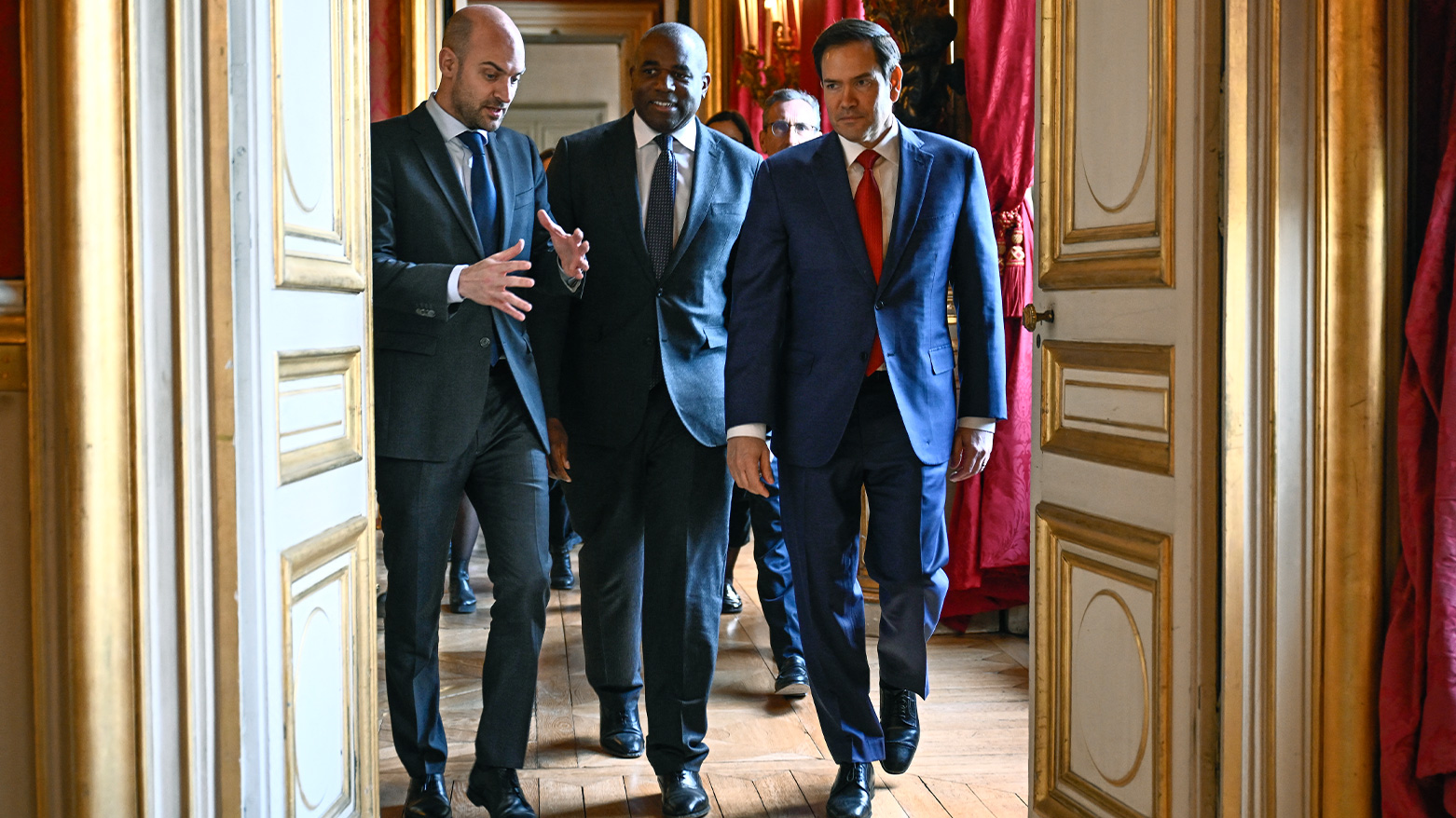'If It’s Not Possible to End the War, We Need to Move On,' Rubio
Regarding efforts to end the Russia-Ukraine war, Rubio stated, "We need to determine very quickly now, and I’m talking about a matter of days, whether or not this is doable in the next few weeks."

By Kamaran Aziz
ERBIL (Kurdistan24) – The United States may soon withdraw from its effort to mediate peace between Ukraine and Russia, with Secretary of State Marco Rubio warning that Washington will decide within days whether negotiations are worth continuing. The comments reflect growing frustration within the Trump administration over the slow progress of the talks and highlight the high-stakes dilemma facing Western allies after more than three years of war.
Speaking to reporters after a series of high-level meetings in Paris, Rubio said President Donald Trump is "ready to move on" if there is no significant movement soon. "We need to determine very quickly now, and I’m talking about a matter of days, whether or not this is doable in the next few weeks," Rubio stated. "If it is, we’re in. If it’s not, then we have other priorities to focus on."
According to reports by The Washington Post, The Wall Street Journal, and The New York Times, Rubio’s remarks underscored the urgency with which the Trump administration is approaching the negotiations. Despite initial optimism, the talks have delivered few concrete outcomes. A U.S.-brokered 30-day moratorium on strikes targeting energy infrastructure — the only tangible result so far — expired this week without renewal, and both sides have accused each other of repeated violations.
"The president has spent 87 days at the highest level of his government repeatedly taking efforts to bring this war to an end," Rubio said. "We are now reaching a point where we need to decide and determine whether this is even possible or not."
In Paris, U.S., Ukrainian, and European officials convened for the first intensive multilateral discussions aimed at aligning positions and salvaging the negotiations. The talks followed increasing concern in European capitals over the Trump administration’s outreach to Moscow, including multiple visits to Russia by U.S. special envoy Steve Witkoff, who has not yet visited Ukraine. Witkoff is reported to have met with Russian President Vladimir Putin three times since Trump began his second term.
French President Emmanuel Macron hosted the Paris meetings, and according to an Élysée official quoted in The Washington Post, all sides emphasized their shared goal of achieving a comprehensive ceasefire. The talks reportedly included discussion of a U.S. draft framework for peace, though no details have been made public.
While Macron and European officials expressed cautious optimism, Rubio's tone was notably more skeptical. He stated that the administration will not continue discussions indefinitely without signs of real progress. "If the war cannot be ended soon, I think the president is probably at a point where he’s going to say, 'Well, we’re done.' We’re not going to continue with this endeavor for weeks and months on end."
Trump’s disengagement from the talks could mark a dramatic shift in U.S. policy and a potential diplomatic victory for the Kremlin. Kremlin spokesman Dmitry Peskov responded quickly to Rubio’s warning, stating that while negotiations were difficult, the expired energy ceasefire represented progress. However, Russia continues to insist on maximalist conditions — including permanent Ukrainian neutrality, military restrictions, regime change in Kyiv, and territorial concessions — that remain unacceptable to Ukrainian leaders.
Ukrainian President Volodymyr Zelensky has criticized the U.S. negotiating stance, accusing special envoy Witkoff of echoing Russian narratives, including the possibility of ceding five occupied territories to Moscow. Speaking from Paris, Zelensky acknowledged the pressures but reaffirmed Ukraine’s position: no agreement that sacrifices sovereignty or abandons aspirations for European integration.
Meanwhile, a separate memorandum of understanding was signed late Thursday between the U.S. and Ukraine, laying the groundwork for an economic partnership focused on reconstruction and resource access. According to The Wall Street Journal, the deal is seen as an attempt to balance Trump’s demand for return on U.S. aid — estimated by him at $350 billion — by granting American companies preferential access to Ukraine’s mineral and infrastructure projects.
While both sides characterized the economic pact as constructive, it has sparked domestic debate within Ukraine, with critics warning it could compromise national sovereignty and future EU membership. Deputy Prime Minister Yulia Svyrydenko, who signed the memorandum with U.S. Treasury Secretary Scott Bessent, insisted it would be mutually beneficial and serve as a foundation for deeper cooperation.
Still, political analysts warn that U.S. withdrawal from peace talks could imperil both the ceasefire effort and the economic agreement. Mykhailo Samus, director of the New Geopolitics Research Network in Kyiv, told The New York Times that an American exit would signal the Trump administration’s “powerlessness regarding the Russia-Ukraine war” and raise doubts over the credibility of the minerals deal.
Looking ahead, another round of talks is scheduled to take place in London next week. Rubio and Witkoff are expected to attend only if they believe substantive progress can be made. "Hopefully we’ll have another meeting early next week, at some point, where we’ll have some more definitive answers," Rubio said. "But this isn’t going to go on forever."
Trump, speaking to reporters Thursday, reiterated his desire to end the war but expressed doubt about Zelensky’s leadership. “I wouldn’t say he’s done the greatest job,” he said. However, Trump confirmed plans to finalize the economic deal with Ukraine by next Thursday and emphasized his administration’s interest in securing U.S. access to critical mineral resources.